by Carrie Boyko, CEB
NOTE: A New prize give away starts today,
so stick with me to the end and read how you can be a winner.
Having a houseful of dogs is very similar to a large family. Children are children, needing much of the same structure, leadership, planning and rules that our canine kids need. Fortunately for me, my dogs are easier than my kids ever were :)
My pack? Currently I have a senior citizen Retriever mix, Xena, that is 13 1/2 (or 14 1/2?) going on 2 some days, a 3 yr old Golden Retriever, Tanner, that is 70 lbs of social butterfly, and a 9 lb. Papillon who won't let me out of his sight. From time to time I have another Pap I care for, and there has been an occasional foster dog. And that's just the dogs; I didn't mention the cats, rabbits or other furry companions. Without a strategy, this would be one crazy place.
Here's my tips for keeping your sanity with a houseful of pups, young and old, small and large.
Newly arrived members of the pack get the full-family treatment: a long walk to tire them out, followed by a greeting session with the whole gang OUTSIDE, generally on neutral turf. My pack is friendly, so as long as the newcomer is too, we're good to go.
Everyone Sits at the front door, and guess who goes in first? Yep! Me and all other humans in the group. Dogs enter when I give permission. 'Wait' is a wonderful command.
New pack members, even if only temporary, join my pack in a cordoned off area of the house. There's plenty of room, dog beds, porch and play area. Only after everyone demonstrates that they know the rules (where they can go and what they can do) do they get a chance to check out other areas of the house. They learn this without my explaining it to them--simply by watching the well-behaved pack members being allowed to go out to the rest of the house when I choose. They even learn that the pool and the cat are off limits.
The most important rule to managing a multi-dog household is establishing who owns the stuff. All toys, food, and other objects are mine; no questions asked. No begging, no whining, no complaining.
Snacks, treats and toys are given out when and where I decide. One way I establish this ownership is by removing many toys and all food from access by the dogs. This sends a clear message about ownership.
The dogs must sit and behave calmly to get what they want. Because they understand that the food and toys are mine, they never have aggression issues over food bowls or toys. NEVER. One little slip, and I'd ask them to give up the toy with a firm 'drop it' command, and the toy disappears for a couple of weeks. Honestly, I can't tell you how long it has been since this happened--probably while my Pap, Oliver, was in puppy training. My 70 lb Golden, Tanner, will 'Drop It' on command without question. For a big boy, he's a submissive rule follower, at least when I give him a command. My no nonsense commands have a "I mean business" sort of tone, without being mean or aggressive. The dogs simply understand that I expect what I ask for, and that's that.
Mealtime is a routine that trains my dogs. They wait at their spots calmly, the entire time I am preparing their dishes. After I place their dishes in front of them, they watch for permission to eat. Whomever is the best behaved earns the right to start first. The others continue to wait until I give the command: 'all done' and 'take it'.
Need more help? Come back for my next post--Part II. You can also check out my article on this topic at Critter Minute. Or you could get some good info in this book, Feeling Overwhelmed: How to Manage and Enjoy Your Multi-dog Household. Patricia McConnell is a well-respected author of many dog handling books.
If you still need help with your larger pack, drop your questions to our trainer, Judy. She'll be glad to give you some assistance. You can reach her here at LetsAdoptaDogPark@gmail.com.
You'll be certain to find some interesting remarks from my muttley crew at 5 Minutes for Fido, when they read today's post. I'm pretty sure they think they're a piece of cake to handle, and all joking aside, they're pretty good, as pack families go.
 |
| Image Courtesy of Through a Dog's Ear |
Would you like one? You can enter a drawing to get one free (a $15 value!) by:
- Comment on this post or the one tomorrow (Part II) about why you need help with your dogs, OR
- Send me an email with a photo of your dogs, and don't forget their names (at least 2 dogs in the same pic--no humans, please).
Good luck!
NOTE: All contest entries here at All Things Dog Blog are ongoing. If you don't win this time, your name stays in the pot for future drawings. You may enter as often as you wish.
NOTE: All contest entries here at All Things Dog Blog are ongoing. If you don't win this time, your name stays in the pot for future drawings. You may enter as often as you wish.





Help protect our precious dog parks
© Carrie Boyko, all rights reservedFollow All Things Dog at Twitter Find me at Facebook

© copyright Carrie Boyko, all rights reserved
Bookmark this on Delicious
















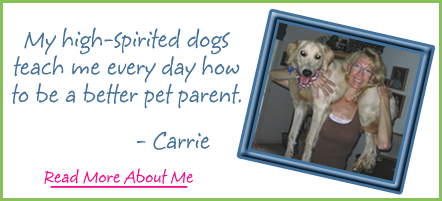
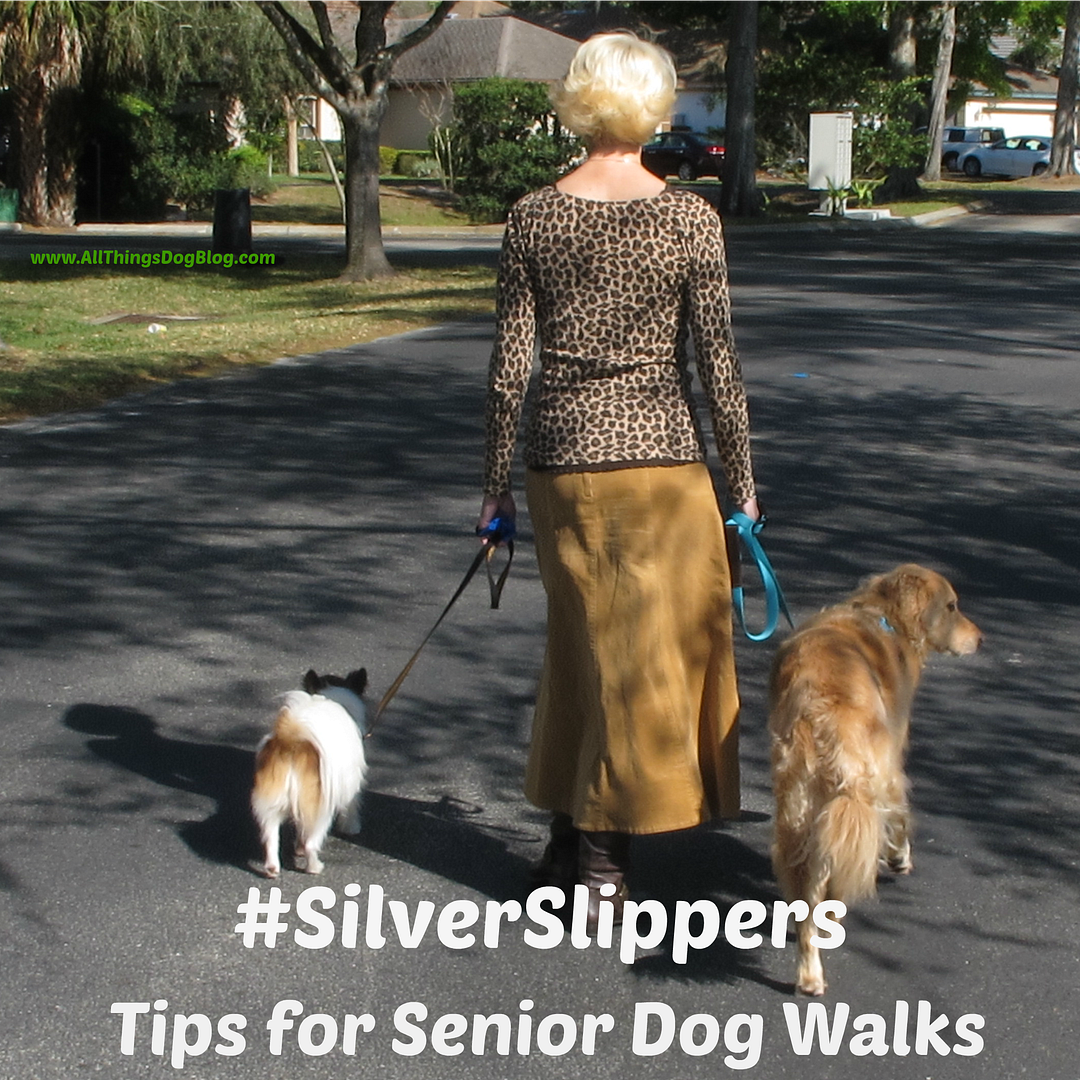





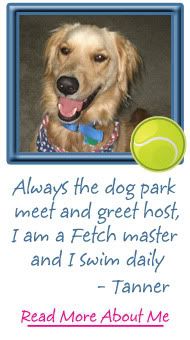
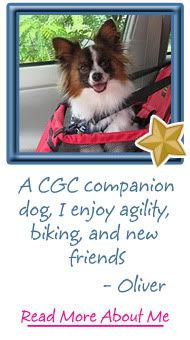





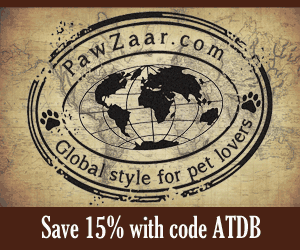







2 comments:
Nature by Dawn said...
Several years ago when I worked at an animal shelter, I had 6 dogs and 4 cats. At mealtimes, I would have all 6 dogs sit and stay while I filled up their bowls. Only when I said, "Okay", did they get up and go to their own bowls. (Smokey, the alpha, would sometimes try to get food out of another dog's bowl, but only when he thought I wasn't looking.)
Having 6 dogs and 4 cats was not as difficult as you would think. I practiced most of the leadership techniques described above with some slight differences. The only real chores were cleaning up the pet hair inside and picking up the dog poo outside.
Carrie, with Tanner and Oliver said...
You hit the nail on the head--leadership. That's the key to making it work with more than one pet.
Post a Comment